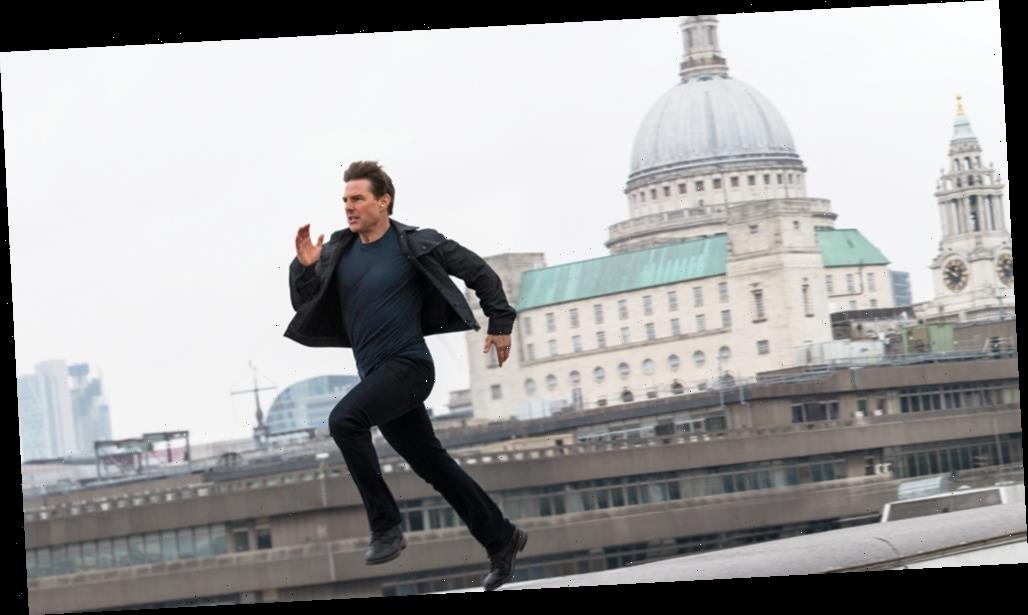In recent years, Norway has become the backdrop to major studio films like “Black Widow,” “Dune,” “Tenet” and James Bond film “No Time to Die.” The latest tentpole in town was Paramount Pictures’ “Mission: Impossible 7,” one of the first studio films to resume shooting after seven months on hold due to the coronavirus pandemic.
For the last six weeks, director Christopher McQuarrie, star Tom Cruise and the rest of the “Mission: Impossible 7” team have been filming action-packed scenes in Western Norway, featuring the Orient Express. On Monday, McQuarrie marked the end of the Norway shoot with an Instagram post thanking an “endlessly enduring” Norwegian crew that made production possible. Filming has now moved on to Rome, Italy.
Sigmund Elias Holm of the Western Norway Film Commission explains that “Norway launched its [tax] incentive in 2016, around the same time as ‘Ex Machina’ introduced our fresh locations to global audiences.” There’s been an upward trajectory ever since, even during the pandemic, with shows such as season 2 of Netflix Original “Ragnarok” set to shoot later this fall.
The Norwegian government lifted travel restrictions for film and TV productions qualifying under the film incentive in spring, making the country one of the first to re-start local film and series shoots in late April, says Truls Kontny of the Norwegian Film Commission.
Though some blockbusters, most recently “Jurassic World: Dominion,” have had to suspend shooting due to coronavirus cases, “Mission: Impossible 7” has so far managed to avoid a major production shutdown. Though recent weeks have seen a rise in cases in Norway, the country’s western region, where the majority of production takes place, remains low-risk and has reported few to zero new cases since April.
In an interview with Variety, Jostein Brå Oksavik, the Norwegian COVID-19 supervisor on “Mission: Impossible 7,” who worked closely with the production’s safety supervisor Matt Spooner, details how the film safeguarded against the virus.
What was your experience in this newly formed role for the film?
With a production like “Mission: Impossible 7,” everything is bigger than Norwegian productions and needs more planning. It’s important to stay on top of things as there are enough challenges along the way. As the Norwegian COVID-19 supervisor, I was working on behalf of production service company Truenorth Norway, which took infection control very seriously.
My job was to help provide the production with necessary competence, equipment and crew. The shoot lasted for six weeks, which equals the pre-production period before the shoot. The Norwegian COVID-19 crew consisted of more than 10 employees, supporting the British crew of several nurses and medics led by Rachel Westcott from World Extreme Medicine. I am happy to say we didn’t have any COVID-19 cases.
Whether you get an infected person or not among the staff is really out of your hands. What you can control is early detection, social distancing and sanitation to avoid the spread, and infection tracing routines to handle potential cases. In addition, the west coast of Norway had a very low infection rate, so the probability of infection was very low. In this regard, 99% [of a zero-case record] is due to a strict regime and planning, and the rest is due to luck.
We had an effective infection tracing system, so that if someone had been infected, they and their close contacts would have been isolated and quarantined immediately. Together with social distancing and frequent sanitation, this is the key to safe production.
What specific infection control measures did you have in place?
We tested all personnel involved — in total, more than 900 people — on a weekly basis. In addition to crew and cast, these were all others involved, such as drivers, ambulance personnel and security guards. But testing isn’t enough. Everyone also had to keep a distance of two meters, wear masks and wash and sanitize their hands often. We ordered tens of thousands of masks and tons of alcohol sanitizer, in addition to very strict access control.
Our security company also monitored the daily temperature checks performed by our medics on all cast and crew and made sure that no unauthorized persons entered the shooting areas. Every employee had to scan a QR code to access cars and locations in order to trace infection if necessary. Our hotel ship Hurtigruten had similarly strict measures.
I’d like to emphasize that we hired private health services, so that we didn’t burden the local health resources.
What can upcoming productions learn from the work you have done?
I think the measures must be adapted to each individual production. You can’t just copy and paste our plan and use it for other productions, it doesn’t work like that. On a general level, it is important to start risk analysis at a very early stage and make sure you have the necessary competence and resources. Infection control is also a lot about delegation. Each department must be trained in infection control. It’s also important to establish non-compliance reporting, evaluating and finding new solutions when unforeseen things happen. Because they do! You always learn along the way.

Source: Read Full Article
